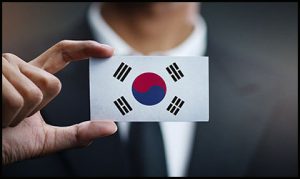The possible opening within the next decade of a trio of Japanese integrated casino resorts will reportedly not damage the future prospects of the coming $1.6 billion Project Inspire venue Mohegan Gaming and Entertainment is building in South Korea.
Competition fears:
According to a Wednesday report, this is the opinion of the man who serves as the American firm’s Corporate Finance Vice-President, Christopher Jones, amid widespread worries that foreign players may soon choose to eschew South Korean venues in favor of spending their cash at the three new integrated casino resorts being planned for Japan.
Player pool:
In an exclusive interview, Jones reportedly told GGRAsia that the first phase of his firm’s Project Inspire property remains on track to open during the final quarter of 2021 and will be able to take advantage of the large pool of potential foreign players who already live close to South Korea.
Jones gave the following statement…
“There are over 700 million people and some of the largest cities in the world all within three hours of both [South] Korea and Japan. So, from a market perspective and overall proximity and convenience, we believe there is ample demand to support the development of integrated resorts in South Korea and Japan.”
Substantial scheme:
Being built on 420 acres of land near Incheon International Airport, the first stage of Project Inspire is reportedly due to feature multiple hotel towers offering some 1,250 rooms, suites and villas alongside a foreigner-only casino complete with around 700 slots and 150 gaming tables. These are to purportedly later be joined by a 15,000-seat sports and concerts arena, an amusement park and approximately 204,000 sq ft of convention and conference space.
Timing advantage:
According to Jones, Project Inspire will also be able to benefit from having a head start on any new competition while his firm is moreover considering the possibility of spending up to $4.5 billion in order to bring an integrated resort casino of its own to the northern Japanese island of Hokkaido.
“Specific to [South] Korea, our operations will have a couple years to develop before facing the opening of Japanese operations, which should allow for the development of a regionally diverse mix of customers in [South] Korea. We see our [South] Korean operations holding a number of advantages over other regions in Asia. From our perspective, we don’t see the supply contemplated for the region as having an adverse impact on the overall return on investment [in South Korea],” added Jones.
Competitor consensus:
Jones’ optimism was seemingly echoed by a spokesperson for South Korean casino operator, Paradise Company Limited, with the representative for the Seoul-headquartered firm explaining that overall player demand will likely increase as more regional gambling venues are opened.
Paradise is the largest casino operator in South Korea thanks to facilities in the cities of Seoul, Jeju and Busan while it reportedly partnered with Japanese entertainment conglomerate Sega Sammy Holdings Incorporated to inaugurate the $1.7 billion Paradise City integrated casino resort in April of 2017. This property is located on a 10.6-acre plot of land adjacent to Incheon International Airport and comes complete with a casino featuring 350 slots alongside some 160 live gaming tables.
Partnership perks:
The unnamed spokesperson reportedly told GGRAsia that Paradise is anticipating that the overall growth in the number of the region’s casinos will lead to ‘more demand for visiting [South] Korea for gaming purposes’. The representative purportedly explained that the operator additionally hopes to be able to take advantage of cross-marketing opportunities with Sega Sammy Holdings Incorporated and that this relationship may increase the chances that its Japanese partner will win one of the coveted licenses to operate an integrated casino resort in its home nation.
The spokesperson went on to say…
“If Japan’s Sega Sammy [Holdings Incorporated] is selected as a casino operator in Japan, we will be able to continue expanding the Japanese market through cooperation.”
Domestic dilemma:
However, Professor Lee Choong-Ki from Kyung Hee  University’s College of Hotel and Tourism, claims that the biggest loser following the opening any Japanese integrated casino resort could possibly be South Korea’s Kangwon Land Casino. Opened in rural Kangwon Province some 93 miles from Seoul in 2000, this is the nation’s only facility that permits locals to enjoy casino-style gambling and could potentially face the prospect of players deserting its floors in order to travel the short distance to Japan.
University’s College of Hotel and Tourism, claims that the biggest loser following the opening any Japanese integrated casino resort could possibly be South Korea’s Kangwon Land Casino. Opened in rural Kangwon Province some 93 miles from Seoul in 2000, this is the nation’s only facility that permits locals to enjoy casino-style gambling and could potentially face the prospect of players deserting its floors in order to travel the short distance to Japan.
Lee said…
“Japan integrated resorts will have an impact on [South] Korean outbound tourists since they are a major [source market] for the Japanese tourism market. Korean people are so sensitive to problem gambling and thus the [South] Korean government may not be willing to liberalize additional domestic casinos or integrated resorts.”
The government of South Korea will likely not look at licensing more local-friendly casinos ‘unless a large number of Koreans visit Japan’ and this exodus results in a ‘strong impact’ towards business at Kangwon Land Casino.
Subdued expectations:
The spokesperson for Paradise reportedly proclaimed that the opening of the Japanese integrated casino resorts could likely ‘be a burden on the Korean government’ while Jones explained that his firm’s Project Inspire is being developed under the assumption that South Korea is to remain a foreigner-only market.
“We are not focused on the Korean market with an expectation that locals will eventually be allowed access to our casino,” Jones concluded.



